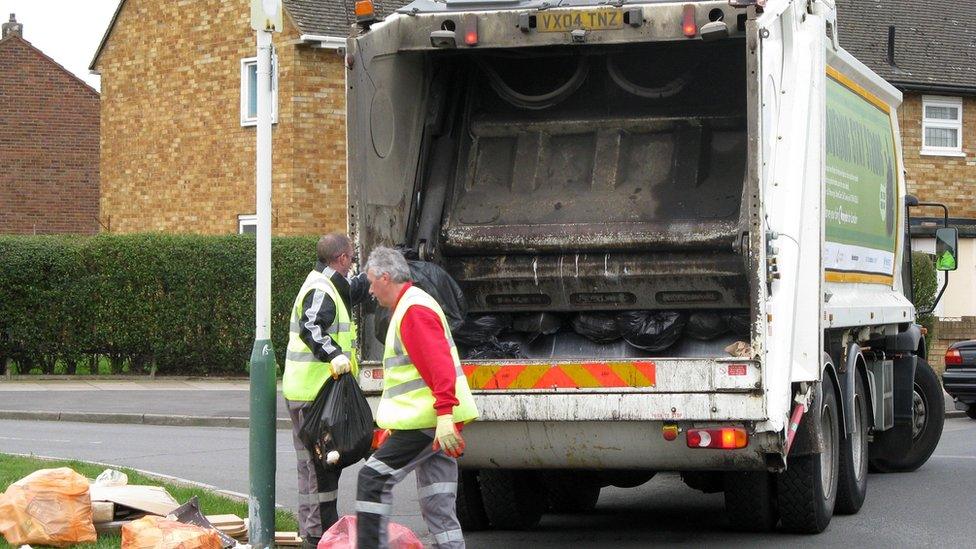Government says four-day working weeks should 'cease immediately'
- Published

About 450 staff at South Cambridgeshire District Council have been trialling a four-day week since January
Councils pursuing a four-day working week are not providing value for taxpayers and should "cease immediately", the government has said.
The first local authority to trial the pattern was South Cambridgeshire District Council, which said it helped to improve recruitment and retention.
But the Department for Levelling Up, Housing and Communities said the scheme should not be adopted elsewhere.
The Cambridgeshire council said its offices remained "open 5 days a week".
The Liberal Democrat-run local authority started a three-month trial in January for the 450 desk-based staff at its office in Cambourne.
This pilot involved them working a 30-hour week over four days before it was expanded to include waste crews in July.
Leader of South Cambridgeshire District Council, Bridget Smith, said the initial trial "saw performance generally maintained, and in some cases improved - with not a single area falling to a concerning level".
She said "strong evidence" suggested the new work pattern helped "fill hard to recruit posts", saving money by avoiding paying high numbers of agency staff.
"Since January, our sickness rates have fallen by a third, staff turnover has reduced by 36%, and complaints about services are down," she added.
The council announced in September it would extend the trial until March 2024, despite ministers previously ordering officials to end it.

South Cambridgeshire District Council reduced working hours for desk-based staff in January as part of the trial
The government "respects" the right of councils to make their own decisions on key issues, said local government Conservative minister Lee Rowley.
But he added: "There are also times, however, when government deems it proportionate to step in to ensure that residents' value for money is protected.
"The issue of the four-day working week is one of those times."

Lee Rowley said councils pursuing a four-day working week were "on notice"
Mr Rowley said the government would take "necessary steps" to end the practice in local government.
Councils that "continue to disregard this guidance are now on notice", he added.
The government said councils that defy the guidance and have evidence of service decline would have their performance monitored "more closely" and the government would consider ways to "correct declining performance".
But Ms Smith said: "I wish the Government would take up our offer of talking to us in-person about the trial, so we can outline all the benefits we can evidence."
She said businesses and residents would receive a presentation at the end of the trial and councillors would vote on whether to forge ahead with a four-day week.
"On one hand Government tells us to innovate to cut costs and provide higher quality services; on the other they tell us not to innovate to deliver services," she added.

Follow East of England news on Facebook, external, Instagram, external and X, external. Got a story? Email eastofenglandnews@bbc.co.uk, external or WhatsApp 0800 169 1830
- Published26 September 2023

- Published9 September 2023

- Published24 August 2023

- Published6 July 2023

- Published6 December 2022
